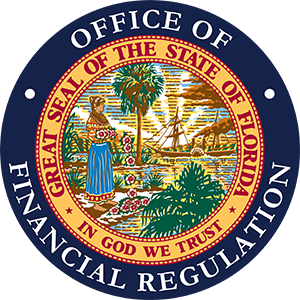Angel Investors for Businesses
This information is provided for general informational purposes only and should not be relied upon as legal interpretations by the Office, shall not supersede any part of the Florida Statutes or Florida Administrative Code, and does not constitute legal or financial advice. The Office does not endorse any third-party or guarantee the accuracy of any third-party information linked to or referenced herein.
An angel investor is an accredited investor, who typically invests on their own behalf in an early-stage startup business in return for equity or convertible debt. Angel investors will often come together and make investment decisions collectively.
Angel investors are more likely to invest in a product, idea, or company which they can relate to or in which they have a vested interest. Innovative and unique ideas that have the potential to disrupt current markets or create new markets can also be appealing.
Seeking investments from angel investors may be appropriate when other traditional financing sources are not an option. Angel investors often bring industry knowledge to a company in which they invest and take on an active role and may be more willing to accept certain risks than a traditional lender. Typically, companies that need initial startup capital or newly post-launch companies seeking seed funding are candidates for angel investors.
Considerations
Surrendering equity in a company may not be appropriate, depending on the company’s future goals. Periodic financial reporting to the U.S. Securities and Exchange Commission may be required depending on the type of offering utilized. Also, if the company plans to raise capital in the future, there will be less equity to sell. Companies should consider the following prior to soliciting capital from an angel investor:
- Is surrendering equity in a company appropriate in light of the company’s future goals?
- Is the company prepared to comply with any periodic financial reporting requirements of the U.S. Securities and Exchange Commission?
- What impact will have less equity to sell have on any future plans the company may have to raise capital?
- Is the company willing and able to manage investor relations?
Angel investors expect a company seeking funding to: be ready to demonstrate its product or service and illustrate the market need with research and data; clearly communicate how much money it needs and how the money will be used; have organized and professional business plans, financial statements, pitch decks, and projections to share; and have prepared an exit strategy for investors.
Business acceleration, incubation programs, and other entrepreneurial support organizations may have connections to investor networks or social networking events. Conferences or events that showcase a particular industry, market, or location may have opportunities for investor networking. You may also research angel investor groups online that correspond to the company’s industry, product, location, or business stage.
Other Resources
U.S. Securities and Exchange Commission – Capital Raising Education for Small Businesses
U.S. Securities and Exchange Commission – Rule 501 (a) Accredited Investor Definition
U.S. Securities and Exchange Commission – Angel Investor Definition
U.S. Securities and Exchange Commission – Early-Stage Investors
